Tuesday, October 1st
| 10:00 a.m.–12:00 p.m. | "Great Decisions: 2013 Egypt" [D. Gallagher, J. Flaming], Ford Hall, Room 122 This is one of the first times that our Great Decisions discussion topics is in a constant state of flux right up until discussion time! So our reading assignment (Great Decisions 2013 Chapter 2, Egypt: Navigating an Uncertain Transition ) written in late 2012 is outdated but excellent background for our discussion. Ditto for our Foreign Affairs Association discussion video, which may or may not be shown in class. So our first task, instead of discussing our foreign policy options toward Egypt, will be to try and understand what in the world in going on in Egypt! On hand to help us understand will be Egyptian American Wail Telbany, a graduate of Western Oregon University and currently a Monmouth businessman. In further preparation for our discussion members should refer view ahead of class, the Sept. 17th Frontline OPB documentary “Egypt in Crisis”. The U.S. has enjoyed 30 years of relatively stable relations with both Israel and Egypt, thanks in large part to the peace plan outlined by the historic Camp David Accords. The harmony between the two rivals has provided a key element of stability in an otherwise turbulent Middle East. But Egypt’s bumpy transition from the autocratic rule of President Hosni Mubarak to its post-Arab Spring reality to it’s first democratically elected President Mohammed Morsi, whose short lived tenure was replaced last month by a military coup has left the United States with even more questions than answers. What challenges does the new Egypt pose for American policymakers and U.S. allies in the region? Class discussion leaders will include Don Gallagher, Trevor Jacobson, and Roz Shirack. |
| 1:00–3:00 p.m. | "From Shingles to Super-bugs: Evolving Threats to Senior Citizens," Cliffton Bong, MD [P. Rasmussen], Ford Hall, Room 122 Dr. Bong will discuss 'flu epidemics of the past and future, and will talk about all manner of immunizations for the prevention of infectious diseases. He will cover MRSA, C. dif, ESBO, CRE (all super-bugs), shingles, and latent TB. He'll explain the "micro-biome", and bacterial transplants and their relationship to antibiotic over-usage. He'll take questions on 'flu, HPV vaccination, and the relationship of vaccinations to autism.
|
Thursday, October 3rd
| 10:00 a.m.–12:00 p.m. | "The Archaeology of the Willamette Valley: Our Home Turf, What's Under There?" Paul Baxter [S. Holmquist], Ford Hall, Room 122 This talk will focus on the fascinating archaeology of the Willamette Valley, beginning with the earliest known occupations 12,000 years ago or perhaps earlier, the adaptations that allowed those few to fill the valley and interact with others in the region, and the coming of Euroamericans. Within that context I will discuss what we have learned from excavations at Cascadia Cave, Salem, the Oregon Country fair, Corvallis, and other sites. Topics will include the prehistoric obsidian trade, the creation of the valley as historically known, and the Great Flood of 1861, as well as archaeological methods and the change in archaeological research brought about by cultural resource management, the legally mandated process to protect cultural and archaeological resources.
|
| 1:00–2:00 p.m. | "How to Listen to and Understand Great Music: The Passacaglia," Video Lecture, Dr. Robert Greenberg [S. Holmquist/J. Miller], Ford Hall, Room 122
Review Dr. Greenberg's bio. |
| 2:00–3:00 p.m. | "Legacies of the Oregon Territory," Jim Booth [J. Heltzel], Ford Hall, Room 122 Jim Booth will present stories of the Booth Family in the Oregon Territory and subsequently with Willamette University.
Jim Booth graduated from Willamette with degrees in economics and mathematics. He was a prolific member of the community: During his time at Willamette, he was a member of Sigma Chi fraternity and participated in basketball, baseball, football and track, ultimately receiving the 1964 Scholar Athlete of the Year award (J.H. Booth Award). Following his time at Willamette, Booth went on to obtain an MBA from the University of Oregon and began a career that took him through positions with the First National Bank and K/P Graphics, where he ultimately served as division manager of four different companies. In addition, he served as a Willamette University trustee from 1970–89; during his tenure he became Willamette’s director of alumni relations. Booth is part of a legacy of Willamette alumni and is the consummate representative of what the university stands for. He is acknowledged universally to be “the face of alumni relations” and has built incredibly durable relationships over the years, serving as a thoughtful, friendly and committed ambassador. He has served in alumni relations for 20 years and announced his retirement from full-time service as of Oct. 31, 2009. In addition to his service to his profession and the 20,000 alumni of the university, Booth has also been recognized as the Erwin LeClerg Outstanding Chapter Advisor of the Year by the Sigma Chi fraternity and continues to fill the role of campus advisor for the group. He has also been active in Rotary for 40 years, serving as president of the Salem club in 1997–98. Booth was recognized with the first Richard A. (Buzz) Yocom Award in 2007 and was inducted into the Willamette Athletic Hall of Fame in 2009. |
Tuesday, October 8th
| 10:00 a.m.–12:00 p.m. | "The Geology of This Garden of Eden–Oregon's Geological History," Courtney Cloyd, Forest Service Geologist [J. Adkins], Ford Hall, Room 122
This tranquil place we call Oregon, with its fertile soils and relatively mild climate, has attracted settlers and supported cultures for more than 12,000 years. The peaceful landscape we see today, however, has a turbulent, sometimes cataclysmic, history dating back nearly 250 million years. It’s a story of fire and ice, upheaval and flooding, and lands thrust out of the ocean. Together, we will take a trip through time to learn about the geologic forces and events that have shaped the place we call home. Courtney Cloyd is a registered professional geologist in Oregon and Washington. In his thirty-five year career with the US Forest Service, he worked on Western Oregon’s Rogue River, Siskiyou, and Siuslaw National Forests. In his last nine years with the Forest Service, he was the Oregon-Washington Regional Engineering Geologist, and was the National Geology and Paleontology Program Manager when he retired in late 2010. Courtney is an Oregon native, with a degree in geology from the University of Oregon and graduate studies in geology at the University of Nevada-Reno. He has lived west of the Cascades in Oregon most of his life. He hunted agates, arrowheads and fossils as a kid, and read science fiction and anthropology. He has written several professional articles, and has edited Diggin' Deep, the quarterly US Forest Service Minerals and Geology newsletter, for four years. |
| 1:00–3:00 p.m. | "Living Life Creatively," Catherine Alexander [Deanna White], Ford Hall, Room 122
|
Thursday, October 10th
| 10:00 a.m.–12:00 p.m. | "Dispute Resolution Theory and Practice—An Introduction," Michael Dwyer [M. Kasoff], Ford Hall, Room 122 This presentation will introduce the nationally ranked Center for Dispute Resolution. The presenter will share basic principles of dispute resolution in the first hour, followed by a focus on mediation theory and practice, with specific case examples and/or short role-plays. The presenter will introduce the theory and awareness of Curiosity (Knowledge), Consciousness, and Compassion on the practice of: a.) Neutrality b.) Power Management, and c.) Trust-building, in most commonly used dispute resolution practices (negotiation & mediation).
Before devoting his practice to mediation, Mr. Dwyer had a long career as a trial lawyer in a variety of practice areas. Early in his career he was involved in the criminal justice system, first as an Assistant United States Attorney in Los Angeles and then as a criminal defense attorney. He has broad experience on both sides of civil cases, including eight years representing defendants in civil lawsuits (including work as a partner at Cosgrave, Vergeer and Kester) and many years representing plaintiffs suffering physical and psychological injuries (including sexual abuse). In 1992 he also began representing families and children in family law matters. Mr. Dwyer is an AV rated attorney by Martindale-Hubbell. He is currently a member of Mediators Beyond Borders, the Oregon Meditation Association, the Association of Conflict Resolution, the Dispute Resolution Section of the Oregon State Bar, the ADR section of the American Bar Association, and the American Family and Conciliation Courts. Mr. Dwyer attended Notre Dame and graduated magna cum laude from UCLA in 1974. He obtained his Juris Doctor in 1977 from Loyola of Los Angeles Law School, where he was the Chief Ninth Circuit Editor of the Loyola Law Review. |
| 1:00–3:00 p.m. | "Township Children Twenty Years After Apartheid," Warren Binford [B. Griffitts], Ford Hall, Room 122 2014 marks the 20th anniversary of the end of apartheid in South Africa. Unfortunately, the political, economic, social, cultural, and educational residue from 46 years of apartheid rule is still widely evident in South Africa's townships. "Township Children Twenty Years after Apartheid" will explore the conditions under which children live in South African townships today. It will highlight the significant legal advances that have been made to recognize the rights of children in South Africa since 1994, while acknowledging the giant chasm that continues to exist between the legal rights espoused and the harsh realities of black children growing up in townships today. Our speaker is Associate Professor of Law and Director of the Clinical Law Program at Willamette University. Her education includes:
Most recently, Professor Binford was selected as a 2012-2013 Fulbright Scholar and spent six months in South Africa lecturing and researching children's issues and the advancement of children's rights in Africa. She was appointed Visiting Professor of Law at the University of the Western Cape where she co-taught an LLM course on children and the law and collaborated with numerous children's right scholars, advocates and NGOs including the Children's Rights Project, Save the Children, and UNICEF. After returning from South Africa, Professor Binford resumed teaching the Child and Family Advocacy Clinic and the Business Law Clinic. Professor Binford also teaches courses on international children's rights and deposition skills. She also has taught in Willamette's Study Abroad Program in Shanghai, China. Further, she reinvigorated the law school's Externship Program by expanding placements, adding an academic component, and increasing supervision and support. She remains the faculty advisor to the program. Professor Binford also teaches negotiation and conflict management in the Certificate Program in Public Management at Willamette's Atkinson School of Management, and previously taught civil rights and the law in education at Willamette's Graduate School of Education. |
Tuesday, October 15th
| 10:00 a.m.–12:00 p.m. | "Music and Dance in Thai Buddhist Temples in California," Pam Moro [J. Heltzel], Ford Hall, Room 122
This presentation will focus on the traditional music and dance of Thailand as taught to youth at two Thai Buddhist temples in California. Material is drawn from the speaker's 2011 research in the San Francisco Bay Area as well as her research in Thailand since the 1980s. Thai temples in California maintain arts programs, facilitated by resident instructors from Thailand in year-long internships. The conjoining of Buddhist sacred sites, Thai institutions (such as the universities that send the young interns), senior members of Thai communities in the U.S. (especially women), and American-raised youth yields new understandings of Thai heritage and identity, with implications that ripple to and from Thailand. The presentation will include a brief introduction to the Thai performing arts, with photos and musical recordings. Our speaker is Pamela Moro, Professor of Anthropology at Willamette University. • Ph.D., University of California, Berkeley (Anthropology), 1988 Professor Moro's publications include: • Magic, Witchcraft, and Religion: an Anthropological Study of the Supernatural, co-editor with James Myers, 7th edition, McGraw-Hill Publishers. 2008. (556 pp.) She was a Fulbright Visiting Scholar in 2007. |
| 1:00–3:00 p.m. | ICL Mini-Field Trip to the Oregon State Hospital Museum [G. Beck], Oregon State Hospital
Last February, we were fortunate to have a fine presentation on the newly opened Museum of Mental Health on the Oregon State Hospital campus. A museum has emerged from what started as a room crammed full of wicker wheelchairs, furniture, medical equipment and over 2,000 items. WU grad Kylie Pine and a group of volunteers spent countless hours cataloging and trying to identify and label the many items as well as arranging them to tell a story that would have otherwise been forgotten. We now have a chance to view the result of their efforts. Hazel Patten, president of the museum board states, “We want to bring the public back onto the campus of the hospital and give them a feeling that this is a safe place to be, a place where they can go and learn more about something they didn’t know much about.” Since parking is limited we will encourage carpooling and bus transportation. There will be guides to help those not familiar with the details of getting there by bus. |
Thursday, October 17th
| 10:00 a.m.–11:00 a.m. | "Experiencing Hubble: Understanding the Greatest Images of the Universe, Lecture 3: The Sagittarius Star Cloud," Video lecture, Prof. David M. Meyer [H. King], Ford Hall, Room 122
|
| 11:00 a.m.–12:00 p.m. | "WWII Japanese Balloon Explosion in Bly, Oregon, May 5, 1945," Eunice Porter, Ford Hall, Room 122
|
| 1:00–2:00 p.m. | "The Story of Human Language Video Series, Lecture 13: 'The Case for the World's First Language'," Prof. John McWhorter [Terry Svingen], Ford Hall, Room 122
Our host this afternoon is Terry Svingen. |
| 2:00–3:00 p.m. | “How in the World Did They Get That Rope Up There?” Gary Beck, Ford Hall Room 122 For this presentation we will ignore that unanswerable question about why people choose to climb mountains and instead focus on the more easily answered “how.” As children, we are told to stop climbing the furniture and trees or we will fall and hurt ourselves. Some choose to listen and others don’t. ICL member Gary Beck will illustrate various difficulty–based rating systems of climbing as well as the tools and techniques utilized. We will conclude with a live demonstration of a climb of the dreaded “South Face Direct Route” of the Ford Hall, Room 122 stairway. This will illustrate how the first person protects himself on the way up and then “belays” the next person up the route. Hopefully, this will all occur without the need for calling for Search and Rescue and will not stress the faint of heart.
|
Tuesday, October 22nd
| 10:00 a.m.–12:00 p.m. | Title TBA, Willamette's Chaplain Karen Wood and Assistant Chaplain Gary Ellison [G. Beck], Ford Hall, Room 122 Description TBA
Karen's doctoral thesis explored the role of liberal Jewish voices in the construction of Christian theologies of Judaism. Her work with public benefit and educational institutions has included directing programs in inter-religious dialogue in national and international settings, and serving as dean of students at Union Theological Seminary in New York City and at the National College of Natural Medicine in Portland. Karen is a minister in the United Church of Christ, an avid backpacker, and an enthusiastic transplant from the east coast to the Pacific Northwest. Education: B.A. Brown University, M.Div. Harvard University, Th.D. Harvard University
Education: B.A. University of Washington, M.H.L Reconstructionist Rabbinical College |
| 1:00 p.m.–3:00 p.m. | "Great Decisions: Humanitarian Intervention," [J. Flaming], Ford Hall, Room 122 The "responsibility to protect" doctrine has become central to modern humanitarian intervention. When should the international community intervene? Why is the application of the 'doctrine' selective? How are decisions made? What should be done before an intervention? Topic will be presented by Jeanette and Bruce Flaming and Henrietta and Bill Griffitts. |
Thursday, October 24th
| 10:00–11:00 a.m. | "Experiencing Hubble: Understanding the Greatest Images of the Universe, Lecture 2: 'Comet Shoemaker-Levy 9 and Jupiter'," Video Lecture, Prof. David M. Meyer [G. Adkins], Ford Hall, Room 122
What happens when a kilometer sized asteroid crashes into a planet? In 1980 Luis and Walter Alvarez proposed that such an impact about 65 million years ago caused the extinctions of dinosaurs, along with many other species. Might a future impact lead to the demise of human civilization, or even extinction of life as we know it? How likely is such an event? The comet Shoemaker-Levy 9 was first observed in March, 1993. It was found to be orbiting Jupiter in several pieces, having broken apart in an earlier near-miss with the planet. It was calculated that it would collide with Jupiter in July 2004. Soon after the Hubble telescope was repaired (in 1993), it was to examine that impact firsthand, yielding remarkable images. |
| 11:00 a.m.–12:00 p.m. | "The Story of Human Language Video Series, Lecture 14: 'Dialects–Subspecies of Species'," Prof. John McWhorter [Jim Brown], Ford Hall, Room 122
Our host this morning is Jim Brown. |
| 1:00–3:00 p.m. | “High and Lonesome: Little Century and Coming of Age in the West,” Anna Keesey [L. Rosen], Ford Hall, Room 122 Unlike the urban and eastern youths of literature, who come of age in environments rich with human cultures to choose from and rebel against, Western characters tend to “create” themselves in an environment dominated by landscape. What effect does this phenomenon have on the characters, and the novels they inhabit?
|
Tuesday, October 29th
| 10:00 a.m.–12:00 p.m. | "The Labors of Hercules in the Visual Arts," Ann Nicgorski [Sharon Wright], Ford Hall, Room 122 Our presenter is Professor Ann Nicgorski, Chair of Willamette's Department of Art History. In this talk, we will explore the legend of Hercules, the greatest of the Greek heroes, and its legacy in the visual arts across the ages, including ancient Greek vase paintings, Renaissance masterpieces, and works by contemporary artists. A particular focus will be the controversial murals of Seattle artist Michael C. Spafford for the Washington State Capitol in Olympia (1982) and the two woodcut prints based on these murals that were recently acquired by the Hallie Ford Museum of Art.
Education: Research, Teaching, and Service: |
| 1:00–3:00 p.m. | "Textures of Change in Laos: Conflict, Communism, and Capitalism," Carol Ireson-Doolittle [J. Heltzel], Ford Hall, Room 122 This presentation will include Carol’s observations, studies, and stories from years of involvement with Laos between 1967 and 2013.
|
October 31st
| 10:00 a.m.–11:00 a.m. | "Ritornello Form and the Baroque Concerto," Professor Robert Greenberg's last video lecture on the Baroque Era [S. Holmquist], Ford Hall, Room 122
Finally, the concerto grosso is examined with special attention paid to the ritornello-form first movement of Johann Sebastian Bach's concerto grosso, Brandenburg Concerto no. 5. Review Dr. Greenberg's bio. ***"Here Bullet," Lecture/Recital, Voice Professor Les Green [S. Holmquist/J. Miller] has been rescheduled to the Spring.***
He was recently heard on the Premiere of Robert Kyr's A Time for Life with Cappella Romana, as Don Jose in Opera Theater of Oregon's Carmen, as the Evangelist in Heinrich Schutz's St. John Passion with Portland Vocal Consort and as Alfredo in Opera Theater of Oregon's La Traviata. Green originally hails from the Midwest where he received a Bachelor of Music in Vocal Performance from Ball State University. He resides in Vancouver Washington with his wife, daughter and two beagles. He maintains a thriving private voice studio in Vancouver and teaches voice at Willamette University as well as working with many area high schools and as a clinician and adjudicator. |
| 11:00 a.m.–12:00 p.m. | "For Your Listening Pleasure: More Brandenburg Concerti!" Solveig Holmquist, Ford Hall, Room 122 Your guide this morning is Solveig Holmquist. Now that our friend Robert Greenberg has explained all about this form, and you're dying to put your newfound analytical skills to work, let's hear some more. After all, in this final lecture there's almost more talk than music, and there's a famous truism that "talking about music is like dancing about architecture." These beloved works are simply irresistible, so with minimal chatter we'll enjoy Brandenburg Concerti #2, #4, and the final movement of #5. |
| 1:00–2:00 p.m. | "Favorite Books," Erin Hanni, Ford Hall, Room 122 Description TBA |
| 2:00–3:00 p.m. | Contemporary Literature Discussion, "Gentlemen of the Road," by Michael Chabon [Bea Epperson], Ford Hall, Room 122
|


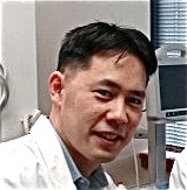 Cliffton Bong, M.D. specializes in one of the fastest changing fields of human medicine: Infectious Diseases. He practices in Salem, and is Board Certified in Infectious Diseases.
Cliffton Bong, M.D. specializes in one of the fastest changing fields of human medicine: Infectious Diseases. He practices in Salem, and is Board Certified in Infectious Diseases.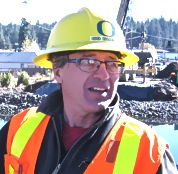 Paul Baxter received his Bachelor's degree in Anthropology from Fort Lewis College in Durango, Colorado, where, in view of Mesa Verde, he was "hooked" by his first archaeological excavation. Baxter earned his Master of Science and PhD degrees in Anthropology at the University of Oregon and conducted surveys and excavations throughout Oregon. Dr. Baxter taught anthropology for fifteen years at Western Oregon University, where his wife Diane is Professor of Music. Now active in Cultural Resource Management archaeology, Paul is a staff archaeologist for the Research Division of the Museum of Natural and Cultural History at the University of Oregon. He has conducted archaeological projects that range both geographically and temporally throughout human occupation of Oregon. Along with a handful of others, Paul is a founding member of the Makindu Children’s Program, a 501(c)3 NGO that provides education, medical care and general support for about 1,200 vulnerable orphans in Makindu, Kenya. To support that program, he has traveled to Kenya five times, and participated in fundraising camel treks through the Great Rift Valley in 2002 and 2012. All told his boots have traversed over 300 miles on African soil, and untold miles across Oregon. Paul lives in Brownsville, Oregon.
Paul Baxter received his Bachelor's degree in Anthropology from Fort Lewis College in Durango, Colorado, where, in view of Mesa Verde, he was "hooked" by his first archaeological excavation. Baxter earned his Master of Science and PhD degrees in Anthropology at the University of Oregon and conducted surveys and excavations throughout Oregon. Dr. Baxter taught anthropology for fifteen years at Western Oregon University, where his wife Diane is Professor of Music. Now active in Cultural Resource Management archaeology, Paul is a staff archaeologist for the Research Division of the Museum of Natural and Cultural History at the University of Oregon. He has conducted archaeological projects that range both geographically and temporally throughout human occupation of Oregon. Along with a handful of others, Paul is a founding member of the Makindu Children’s Program, a 501(c)3 NGO that provides education, medical care and general support for about 1,200 vulnerable orphans in Makindu, Kenya. To support that program, he has traveled to Kenya five times, and participated in fundraising camel treks through the Great Rift Valley in 2002 and 2012. All told his boots have traversed over 300 miles on African soil, and untold miles across Oregon. Paul lives in Brownsville, Oregon.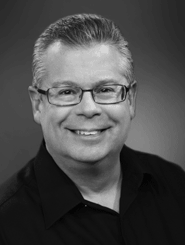 This lecture introduces the vital concepts of instrumental musical form—preordained processes that organize musical materials into recognizable structures without the presence of (or need for) words. Until the Baroque Era, almost all musical form was determined by the words being set to music. The development of instrumental music during the Baroque era went hand-in-hand with the creation of musical structures that would render abstract instrumental music intelligible to its audiences. This lecture focuses on Baroque-era musical forms based on the process of variation: passacaglia, ground bass, and chaconne (or ciacona). We will revisit "Dido's Lament" as an example of a passacaglia, and we will examine Bach's magnificent Passacaglia in C Minor for Organ.
This lecture introduces the vital concepts of instrumental musical form—preordained processes that organize musical materials into recognizable structures without the presence of (or need for) words. Until the Baroque Era, almost all musical form was determined by the words being set to music. The development of instrumental music during the Baroque era went hand-in-hand with the creation of musical structures that would render abstract instrumental music intelligible to its audiences. This lecture focuses on Baroque-era musical forms based on the process of variation: passacaglia, ground bass, and chaconne (or ciacona). We will revisit "Dido's Lament" as an example of a passacaglia, and we will examine Bach's magnificent Passacaglia in C Minor for Organ.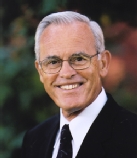
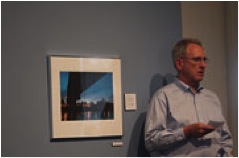
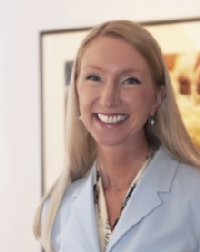 With a new novel under her belt and a florilegium (book of native flora illustrations) in the works, Catherine Alexander’s creative pursuits have expanded to include the founding of a nonprofit dedicated to promoting and interpreting the legacy of David Douglas, a naturalist who traveled extensively through the Pacific Northwest in the early 1800s. Learn how she combines these projects with her “day job” as gallery director at the Bush Barn Art Center—a position that allows her the opportunity to design thought-provoking exhibitions documenting the lively intersections between visual art, history and natural science. In her spare time, Catherine pens poetry, hikes, photographs the outdoors and retreats to Fen Meadow, her childhood home, where she finds inspiration in nature’s smallest details. She considers the writers Robert Michael Pyle and Louise Dickinson Rich her mentors as she seeks a path in which the natural world permeates every aspect of her creative life.
With a new novel under her belt and a florilegium (book of native flora illustrations) in the works, Catherine Alexander’s creative pursuits have expanded to include the founding of a nonprofit dedicated to promoting and interpreting the legacy of David Douglas, a naturalist who traveled extensively through the Pacific Northwest in the early 1800s. Learn how she combines these projects with her “day job” as gallery director at the Bush Barn Art Center—a position that allows her the opportunity to design thought-provoking exhibitions documenting the lively intersections between visual art, history and natural science. In her spare time, Catherine pens poetry, hikes, photographs the outdoors and retreats to Fen Meadow, her childhood home, where she finds inspiration in nature’s smallest details. She considers the writers Robert Michael Pyle and Louise Dickinson Rich her mentors as she seeks a path in which the natural world permeates every aspect of her creative life.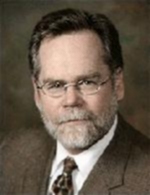 Michael Dwyer is a lawyer specializing in mediation. He is listed in Best Lawyers in America and Oregon Superlawyers for his work in mediation and alternative dispute resolution. Michael was also the 2008-09 President of the Multnomah Bar Association covering Portland, Oregon.
Michael Dwyer is a lawyer specializing in mediation. He is listed in Best Lawyers in America and Oregon Superlawyers for his work in mediation and alternative dispute resolution. Michael was also the 2008-09 President of the Multnomah Bar Association covering Portland, Oregon.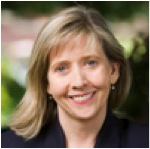 Professor Binford was appointed to the Willamette University College of Law faculty and became director of Willamette's
Professor Binford was appointed to the Willamette University College of Law faculty and became director of Willamette's 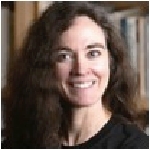
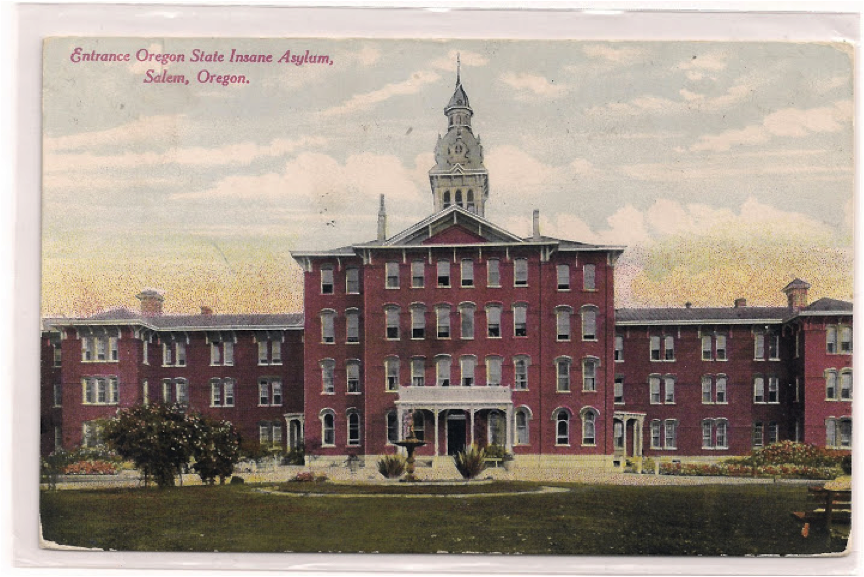
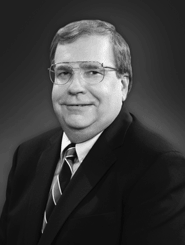 In this lecture, we leave the solar system and begin to explore the Milky Way Galaxy with Hubble. Our first stop is the Sagittarius Star Cloud, one of the richest star fields in the night sky and located near the center, or bulge, of our galaxy. The Hubble view of the star cloud looks like a sparkling jewel box in the sky and illustrates one of the major advantages of Hubble over ground based telescopes: its ability to image the cosmos at very high spatial resolution and to distinguish closely spaced stars.
In this lecture, we leave the solar system and begin to explore the Milky Way Galaxy with Hubble. Our first stop is the Sagittarius Star Cloud, one of the richest star fields in the night sky and located near the center, or bulge, of our galaxy. The Hubble view of the star cloud looks like a sparkling jewel box in the sky and illustrates one of the major advantages of Hubble over ground based telescopes: its ability to image the cosmos at very high spatial resolution and to distinguish closely spaced stars. Most Americans are unaware that there were casualties on the U.S. mainland during World War II--in fact, right here in Oregon! ICL member Eunice Porter lived in Klamath Falls not far from where the balloon exploded. She will go into details about the explosion and "the rest of the story" since that fateful day.
Most Americans are unaware that there were casualties on the U.S. mainland during World War II--in fact, right here in Oregon! ICL member Eunice Porter lived in Klamath Falls not far from where the balloon exploded. She will go into details about the explosion and "the rest of the story" since that fateful day.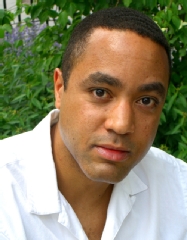 Most linguists' reception of the Proto-World work has been less skeptical than hostile, and as often in such cases, there is more truth to the theory than many admit. For example, there is increasing evidence that many of the world's families do trace to "mega-ancestors," even if evidence for a Proto-World remains lacking. The Proto-World school's reconstruction of features of the Native American proto-language are promising, and one of these linguists has recently discovered a likely valid link between languages whose speakers have had no contact for 50,000 years.
Most linguists' reception of the Proto-World work has been less skeptical than hostile, and as often in such cases, there is more truth to the theory than many admit. For example, there is increasing evidence that many of the world's families do trace to "mega-ancestors," even if evidence for a Proto-World remains lacking. The Proto-World school's reconstruction of features of the Native American proto-language are promising, and one of these linguists has recently discovered a likely valid link between languages whose speakers have had no contact for 50,000 years.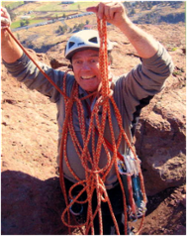 Gary Beck, ’09, accepted a dare to climb Mt. Washington while still in High School. He made it but couldn’t walk for the next two weeks because of world-class blisters. After college, he tried again and hasn’t yet had the sense to quit. He has climbed everything you have heard of in the Northwest and many more you have never heard about. He has also been fortunate to visit the high places of Utah, West Virginia, Wyoming, Montana as well as the highest points of Switzerland, France, Africa and Russia.
Gary Beck, ’09, accepted a dare to climb Mt. Washington while still in High School. He made it but couldn’t walk for the next two weeks because of world-class blisters. After college, he tried again and hasn’t yet had the sense to quit. He has climbed everything you have heard of in the Northwest and many more you have never heard about. He has also been fortunate to visit the high places of Utah, West Virginia, Wyoming, Montana as well as the highest points of Switzerland, France, Africa and Russia.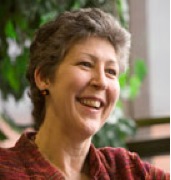 Karen Wood became university chaplain and associate professor of religious studies in June 2012 following ten years as associate chaplain for vocational exploration and director of the Lilly Project for Theological, Ethical and Spiritual Exploration of Vocation.
Karen Wood became university chaplain and associate professor of religious studies in June 2012 following ten years as associate chaplain for vocational exploration and director of the Lilly Project for Theological, Ethical and Spiritual Exploration of Vocation.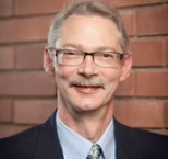 Gary Ellison is Assistant Chaplain at Willamette University.
Gary Ellison is Assistant Chaplain at Willamette University.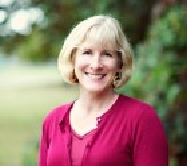 Anna Keesey is a graduate of Stanford University and of the University of Iowa’s Writers’ Workshop. Her work has appeared in a number of journals and anthologies, including Best American Short Stories. She’s the recipient of a National Endowment for the Arts creative writing fellowship and has held residencies at MacDowell, Bread Loaf, Yaddo, and Provincetown. She has taught English and creative writing, most recently at Northwestern University and Linfield College in McMinnville, Oregon. For more information about the author, please visit her website: www.AnnaKeesey.com.
Anna Keesey is a graduate of Stanford University and of the University of Iowa’s Writers’ Workshop. Her work has appeared in a number of journals and anthologies, including Best American Short Stories. She’s the recipient of a National Endowment for the Arts creative writing fellowship and has held residencies at MacDowell, Bread Loaf, Yaddo, and Provincetown. She has taught English and creative writing, most recently at Northwestern University and Linfield College in McMinnville, Oregon. For more information about the author, please visit her website: www.AnnaKeesey.com.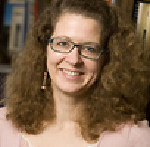 Professor Nicgorski's bio:
Professor Nicgorski's bio: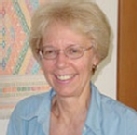 Professor Emerita Carol Ireson-Doolittle retired from Willamette's Department of Sociology in 2008 after 34 years' teaching.
Professor Emerita Carol Ireson-Doolittle retired from Willamette's Department of Sociology in 2008 after 34 years' teaching. Tenor and Voice Professor, WU Music Faculty, Leslie W. Green, is in high demand as a soloist in the Northwest. Often praised for his seemingly effortless, expressive singing, Mr. Green performs a wide variety of literature ranging from Bach arias to contemporary art songs. Green has appeared throughout the Northwest with many of the finest ensembles and events including Oregon Repertory Singers, Portland Symphonic Choir, Annas Bay Music Festival, Mount Angel Abbey, Willamette Master Chorus, Eclectic Orange Festival in Orange County California, Rose City Chamber Orchestra, Cascade Music Festival, Northwest Mahler Festival, Columbia Chorale and numerous Church concerts and music series.
Tenor and Voice Professor, WU Music Faculty, Leslie W. Green, is in high demand as a soloist in the Northwest. Often praised for his seemingly effortless, expressive singing, Mr. Green performs a wide variety of literature ranging from Bach arias to contemporary art songs. Green has appeared throughout the Northwest with many of the finest ensembles and events including Oregon Repertory Singers, Portland Symphonic Choir, Annas Bay Music Festival, Mount Angel Abbey, Willamette Master Chorus, Eclectic Orange Festival in Orange County California, Rose City Chamber Orchestra, Cascade Music Festival, Northwest Mahler Festival, Columbia Chorale and numerous Church concerts and music series.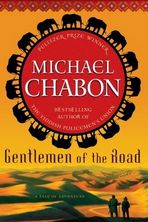 The book is a swashbuckling tale of adventure about two cronies making their way through the Caucasus Mountains (near Turkey) circa 950 AD. They get into all sorts of adventures and each chapter shows a picture to help visualize what is going on. The artist is Gary Gianni, who currently draws the comic "Prince Valiant."
The book is a swashbuckling tale of adventure about two cronies making their way through the Caucasus Mountains (near Turkey) circa 950 AD. They get into all sorts of adventures and each chapter shows a picture to help visualize what is going on. The artist is Gary Gianni, who currently draws the comic "Prince Valiant."